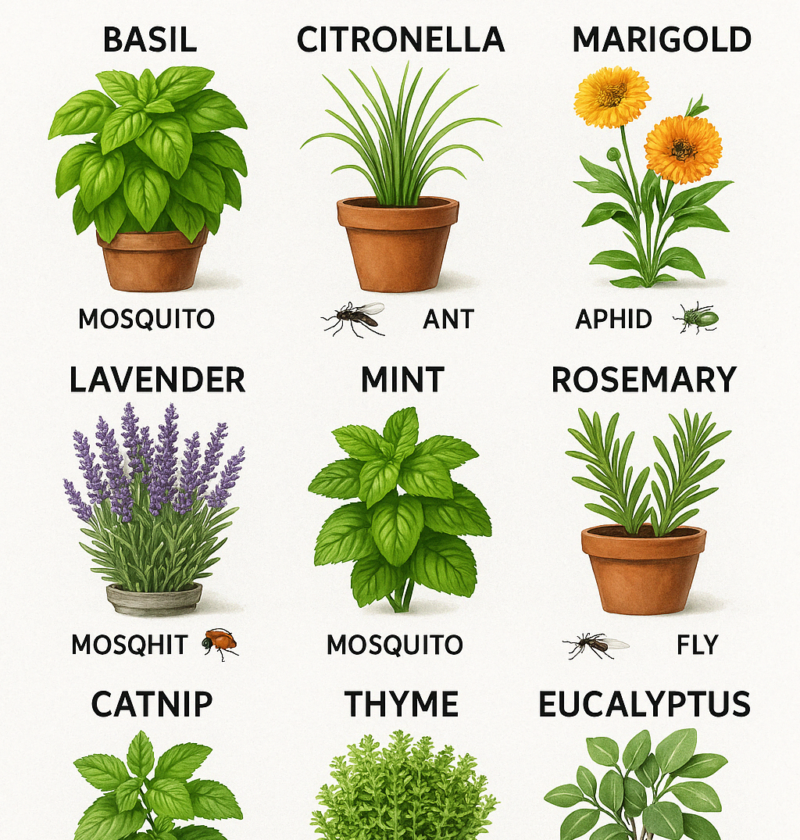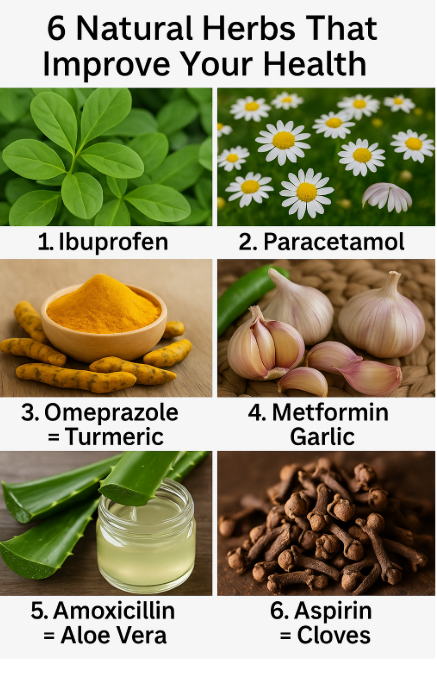Natural Insect Defense in the Garden: 11 Plants That Repel Harmful Insects 🌿🕳️
Creating a pest-free garden doesn’t require synthetic chemicals or harsh sprays. Nature has its own defense system, and it starts with strategic planting. Many herbs, flowers, and garden plants have natural properties that repel unwanted insects while attracting pollinators and promoting biodiversity. In this guide, we explore 11 of the best natural insect-repellent plants that can be used to protect your garden the organic way.
1. Basil 🌿
Repels: Mosquitoes, houseflies
A must-have for any herb garden, basil does more than add flavor to pasta sauces. Its aromatic oils work as a powerful natural repellent against flying insects like mosquitoes and flies.
> Best Placement: Near doorways, patios, or in pots around seating areas.
2. Lavender 🌼
Repels: Moths, fleas, flies, midges
Known for its calming scent and purple blooms, lavender is a potent insect deterrent. It contains linalool, a compound that deters a wide range of flying insects.
> Bonus: Attracts pollinators like bees and butterflies.
3. Citronella (Cymbopogon nardus) ☕️
Repels: Mosquitoes
Citronella grass is famous for its lemony scent, commonly used in mosquito-repelling candles. But the living plant itself is just as effective.
> Tip: Plant it in large pots or near outdoor dining areas for maximum protection.
4. Calendula (Marigold) 🌿
Repels: Mosquitoes, aphids, rabbits
Bright and cheerful, calendula not only adds color to your garden but also protects vegetables by warding off aphids and other soft-bodied pests.
> Companion Planting: Great for planting near tomatoes and beans.
5. Mint 🌿
Repels: Mosquitoes, ants, mice
Mint’s intense fragrance makes it a multi-pest repeller. However, it can spread aggressively, so consider planting it in containers.
> Garden Bonus: Mint also attracts beneficial insects like predatory wasps.
6. Catnip 🌿
Repels: Mosquitoes, ants, cockroaches
Catnip contains nepetalactone, which is 10x more effective than DEET at repelling mosquitoes. It also drives away ants and cockroaches.
> Note: Cats may love this plant more than you do—plant accordingly!
7. Chrysanthemum 🌼
Repels: Cockroaches, ants, Japanese beetles, ticks, silverfish
Pyrethrum, a compound found in chrysanthemums, is a key ingredient in many commercial insecticides. The plant naturally deters many common garden pests.
> Tip: Place in borders or garden beds near vegetables and shrubs.
8. Garlic 🧄
Repels: Aphids, midges, moths
Garlic has strong antibacterial and insect-repelling properties. Its pungent smell deters aphids and flying insects, especially when crushed or infused into a spray.
> Companion Planting: Excellent around roses and fruit trees.
9. Rosemary 🌿
Repels: Mosquitoes, carrot flies, moths
This hardy herb is both culinary and protective. Rosemary’s woody scent drives away many flying insects and is great for garden borders.
> Bonus: You can dry it and burn small bundles to repel pests in seating areas.
10. Petunias 🌺
Repels: Aphids, tomato hornworms, asparagus beetles
Known as “nature’s pesticide,” petunias deter a wide variety of common garden pests while adding vibrant blooms to your beds.
> Best Use: Near vegetables, especially tomatoes and peppers.
11. Citronella (Cymbopogon nardus)
Repels: Mosquitoes
Often confused with the scented geranium also called “citronella,” the true citronella grass is incredibly effective when planted in warm climates. The plant releases citronellol and geraniol, natural oils used in bug sprays.
> Garden Tip: Needs plenty of sun and space to grow tall.
Final Thoughts: Repel Naturally, Garden Healthily
These 11 plants are beautiful, useful, and functional. By integrating them into your garden, you can enjoy a pest-resistant space without the need for harmful chemicals. Not only do these plants deter pests, but many also attract pollinators and beneficial insects, improving biodiversity and garden health.
Whether you’re protecting your tomatoes or keeping mosquitoes off your patio, using natural insect-repellent plants is a smart, sustainable solution.






